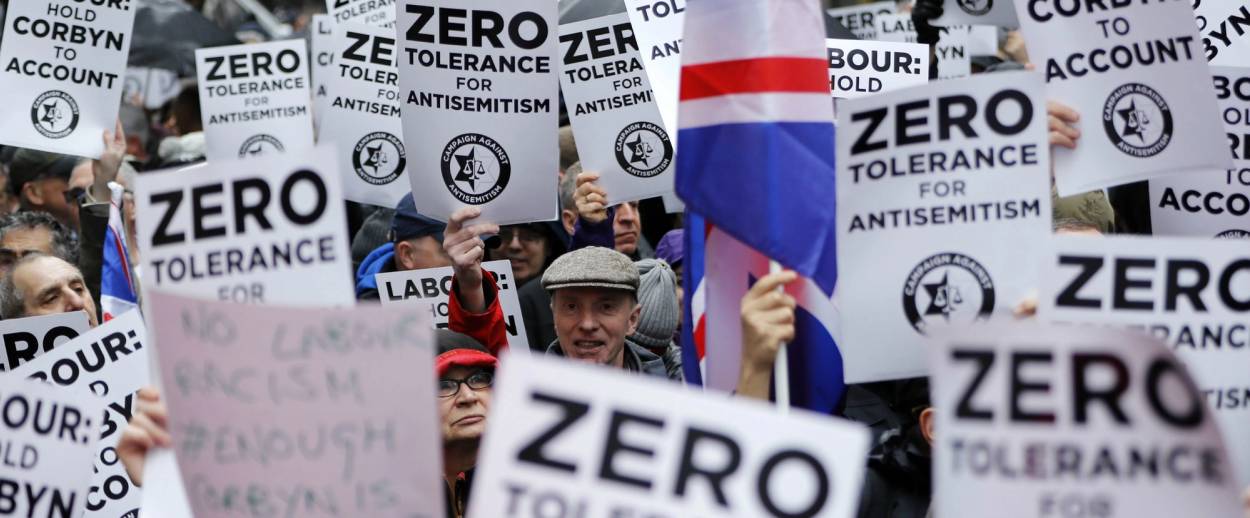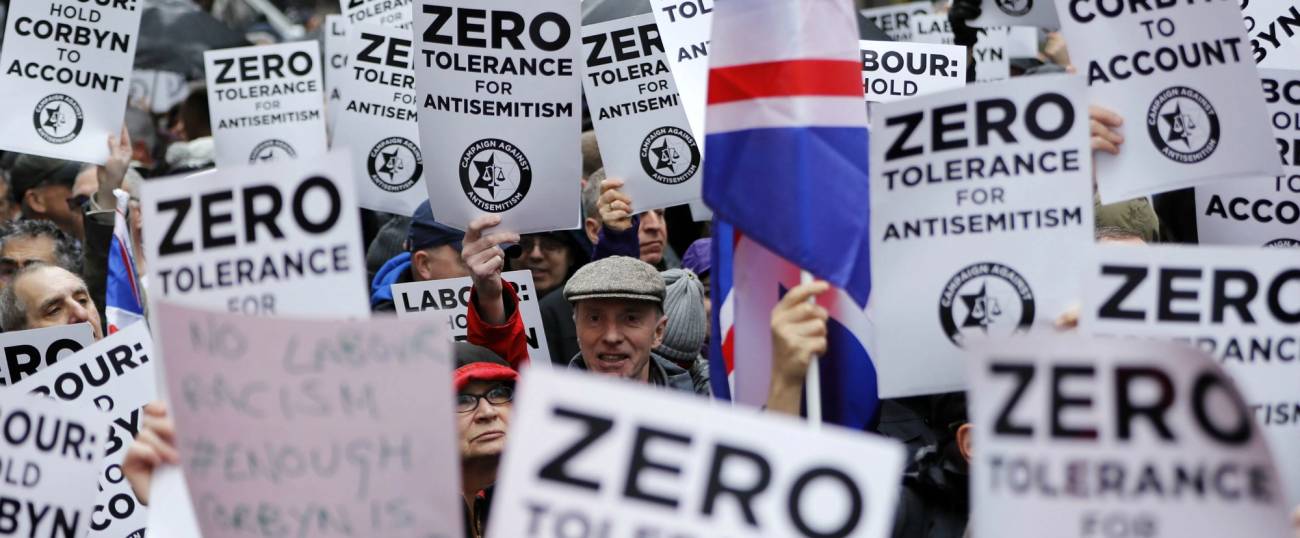British Jews Blast Labour’s New Guidelines on Anti-Semitism
New rules permit comparing Israelis to Nazis, accusing Jews of dual loyalty, and arguing that the Jewish state is inherently racist




In an effort to address accusations that it is not doing enough in response to anti-Semitism in its ranks, Britain’s Labour Party released earlier this week a set of guidelines designed to define and combat the ancient hatred. But the Board of Deputies of British Jews and the Jewish Leadership Council, Britain’s two leading communal groups, blasted the guidelines as insufficient and called into question Labour’s conduct in arriving at the new set of rules.
Starting from the widely accepted definition of anti-Semitism published by the International Holocaust Remembrance Alliance, Labour’s officials then proceeded to omit a few key clauses, including the ones stating that “denying the Jewish people their right to self-determination, e.g. by claiming that the State of Israel is a racist endeavor,” and that “drawing comparisons of contemporary Israeli policy to that of the Nazis,” are both anti-Semitic acts. Labour’s new guidelines do address these issues, but in much weaker language. Comparing Israel to Nazi Germany, for example, is ill-advised, according to the guidelines, merely because it “carries a strong risk of being regarded as prejudicial or grossly detrimental to the party.” Nor do Labour’s guidelines prohibit accusing Jews of being secretly more loyal to Israel than to their country of residence or stating that the creation of a Jewish state was itself an inherently racist act, both of which are expressly prohibited by the IHRA’s definition.
These omissions sparked strong criticism from Britain’s Jews. Jonathan Goldstein, chairman of the Jewish Leadership Council, and Marie van der Zyl, president of the Board of Deputies of British Jews, issued a joint statement yesterday, saying that “the U.K. Jewish community has adopted in full the International Holocaust Remembrance Alliance definition of anti-Semitism, as have the British Government, Welsh Assembly, Scottish Parliament, 124 local authorities across the country and numerous governments around the world. It is impossible to understand why Labour refuses to align itself with this universal definition. Its actions only dilute the definition and further erode the existing lack of confidence that British Jews have in their sincerity to tackle anti-Semitism within the Labour movement.”
Other communal groups went even further. Labour Against Antisemitism, a campaign by activists to force the party to come to terms with its problematic attitudes toward Jews, called the new code “a racists’ charter.” The party, they warned, should consider its next step carefully: “The formal adoption of this document,” read their announcement, “would see any remaining credibility lost, perhaps permanently. We urge the Labour leadership to think again.”
A spokeswoman for Labour called the new guidelines “the most detailed and comprehensive guidelines on anti-Semitism adopted by any political party in this country,” and a source within the party told the Daily Mail that the accusations against the party were bogus. “That is a ludicrous and entirely false claim which deliberately misrepresents the guidelines,” said the source. “They cover all the same ground as the IHRA examples, but they go further, providing more examples and details so they can actually be applied. That is why they were so positively received by all wings of the party and unanimously agreed in the meeting.”
Not all wings of the party, however, seem to agree with this characterization. Leaders of the Jewish Labour Movement, which is part of the Labour Party, wrote the party’s secretary a letter to express their dismay. “The Jewish community, and the Jewish Labour Movement, believe that the best working definition of anti-Semitism is the full IHRA definition, including its examples,” read the letter, signed by MP Luciana Berger and the JLM national chairman Ivor Caplin. “It doesn’t need changing, and it’s unclear for whose benefit these changes have been made. We cannot give anti-Semites a get-out-of-jail free card.”
Liel Leibovitz is editor-at-large for Tablet Magazine and a host of its weekly culture podcast Unorthodox and daily Talmud podcast Take One. He is the editor of Zionism: The Tablet Guide.